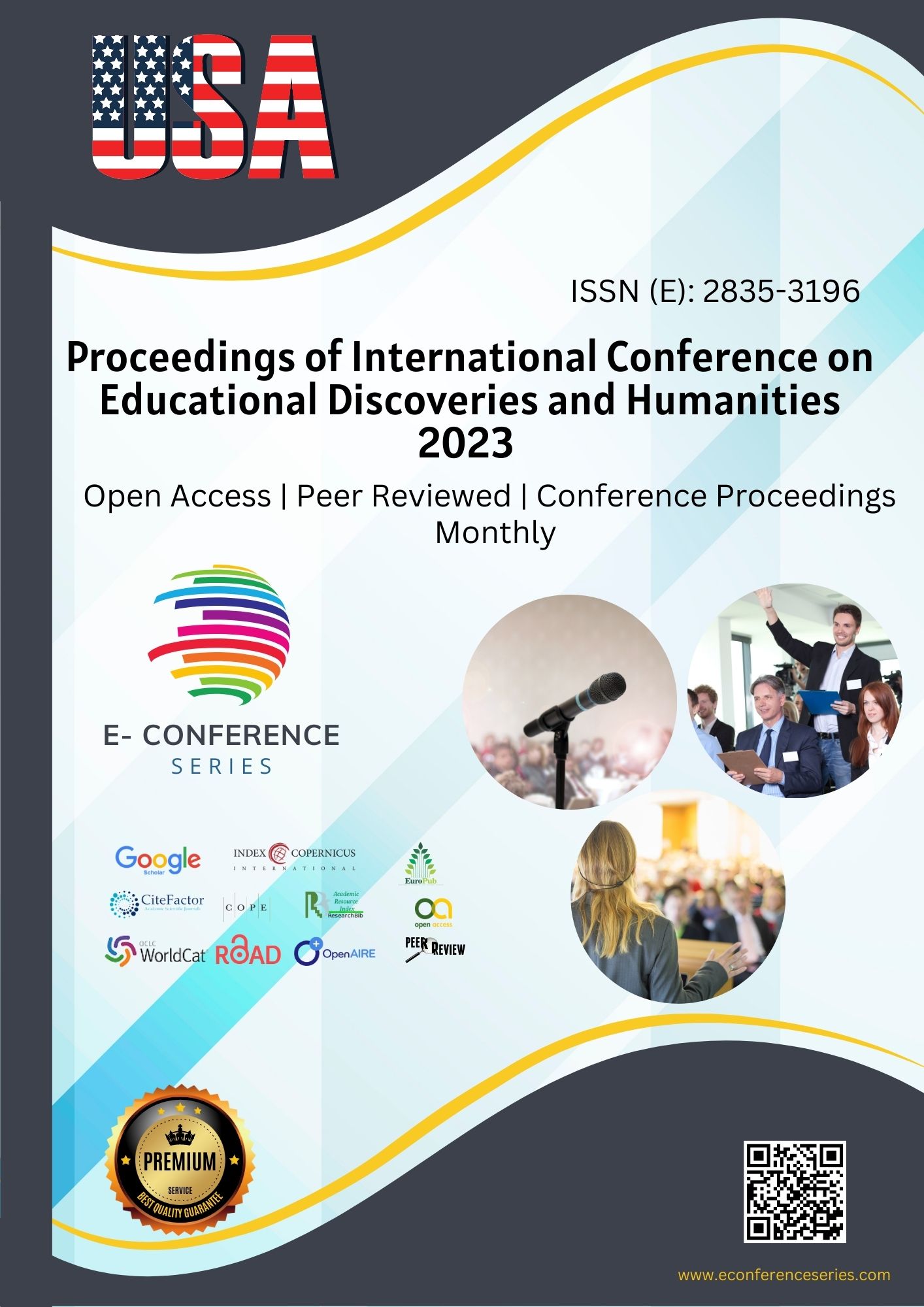MODERN ENGLISH COMMUNICATION IN A COGNITIVE ASPECT
Keywords:
Article, cognitive, science, deixis, discourse, emotionality, marker, database, revision, informative cognitionAbstract
The work is devoted to the cognitive aspect of articles in modern English. Despite the widespread use of the so-called “zero article” and an increase in cases of stylistic disuse of positive articles, which allowed some linguists to talk about the gradual disappearance of this grammatical category in modern English, English articles remain the most important element of communication in this language. The paper shows that this turned out to be possible due to the peculiarities of the historical development of the category of articles in the English language, as a result of which these official words received a special cognitive load. The article studies various areas of the cognitive load of positive articles in modern English at the level of word, utterance and text, examines the new status of the definite and zero articles using the example of cases that in classical works on the English article have always been interpreted as exceptions or as preserved elements of old uses. The author notes the great emotional and semantic role of the opposition of the definite and zero articles, its new influence on the entire system of articles as a whole on the effectiveness of communication and the transfer of the necessary meaning at the level of words, statements and text. The paper draws attention to the need to study the new function of English articles as special emotional markers of discourse. In conclusion, it talks about the emerging tendencies of strengthening the position of this category in modern English.
References
Besedina, M. A. (2019). Interpretation and Morphology: a Cognitive Perspective. The European Proceedings of Social and Behavioural Sciences, LXXXIII, 20-28.
Han, N., Chodorow, M., & Leacock, C. (2006). Detecting errors in English article usage by non-native speakers. Natural Language Engineering, 12(2), 115–129.
Hawkins, J. A. (1991). On (In) definite articles: Implicatures and (Un) grammatically prediction. Journal of Linguistics, 27(2), 110-116.
Katermina, V., Vulfovich, B., & Lipiridi, S. (2019). Linguocultural Aspect of Dynamic Neologization Processes in English Language Discourse the European Proceedings of Social & Behavioural Sciences, LXXVI, 1475–1480. DOI:
Maksimenko, E., Safonova, O., Krasikova, M., & Tymchuk, E. (2019). Text in Advertisement. The European Proceedings of Social & Behavioural Sciences, LXXVI, 2090–2097. DOI:
Rothfeld, G. S., & Romaine, D. S. (2005). Encyclopedia of Men’s Health. New York: Facts on File, inc.
Shaklein, V., Karelova, M., Mikova, S., Deryabina, S., & Mitrofanova, I. (2019). Linguo-Cultural Concept in Describing Linguo-Cultural Situation. The European Proceedings of Social & Behavioural Sciences, LXXVI, 1462–1468. DOI:
Tymchuk, E. V. (2005). Kategoriya opredelennosti-neopredelennosti kak yazykovaya universaliya [The category of certainty-uncertainty as a linguistic universal]. Nauchnaya mysl' kavkaza [Scientific thought of the Caucasus], S16, 221-228.
Tymchuk, E. V., & Krasikova, M. B. (2018). Kognitivnyy podkhod k sopostavitel'nomu izucheniyu artikley v germanskikh yazykakh [A cognitive approach to comparative study of articles in Germanic languages]. Studia Germanica, Romanica et Comparatistica, 14(4), 43-53.
Downloads
Published
Issue
Section
License

This work is licensed under a Creative Commons Attribution-NonCommercial 4.0 International License.








